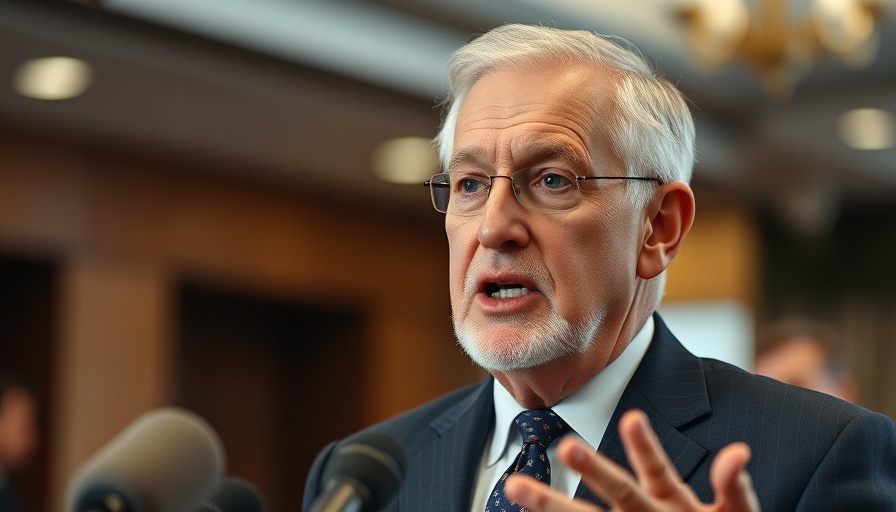
The Texting Controversy: A Glimpse at Military Operations
In the fast-paced world of politics and national security, communication is key. Recently, former President Donald Trump responded to a controversy surrounding the use of the Signal messaging app among his national security team during military operations. In a statement, he referred to the situation as a minor 'glitch,' downplaying its significance. This incident has raised eyebrows about the appropriateness of using such communication tools for sensitive military discussions.
Understanding the Glitch: What Happened?
The allegations stem from a report that members of Trump's national security team were using Signal to share operational plans. Critics argue that discussing military strategies on messaging platforms, which are designed for privacy and not necessarily for government communication, poses serious risks. Trump, however, insists that these communications are typical and do not imply any wrongdoing. He seems to view this as part of the broader narrative of misinterpretation that often surrounds his presidency.
The Bigger Picture: Security Risks of Digital Communication
The debate surrounding this incident taps into larger concerns regarding digital communication methods in government. As technology evolves, so do the ways in which it can be misused. Military and governmental communications are typically conducted through secure channels; however, incidents like this remind us that technology remains vulnerable to security gaps. What happens when sensitive information is shared through supposedly encrypted channels? These questions are crucial, especially in today's society where cyber threats are prevalent.
A Local Perspective: What It Means for Us in Houston
Living in Houston, a city known for its innovation and technological growth, residents are becoming increasingly aware of the implications of digital communication, not just on a national scale but locally as well. As we celebrate developments in artificial intelligence and communication technology, we must also consider the ethical dimensions. How do we ensure that our local authorities utilize technology wisely? The story transcends borders, urging us to reflect on the impact of digital communication in our daily lives and at community levels.
What This Means for National Security Going Forward
Looking ahead, events like these prompt a discussion on national security protocols. There’s an urgent need for a balance between innovation in communication technologies and the preservation of security protocols. As we witness the trend of openness and transparency in government practices, will protocols adapt to new technologies? This helps shape the future operational strategies of our national defense.
Conclusion: Navigating the Future of Communication
As we navigate the complexities of technology and its impact on governance, it's essential for all citizens to remain vigilant. Keeping informed about how our leaders communicate can help us hold them accountable for their decisions. While Donald Trump’s dismissal of the incident as trivial might be comforting to some, understanding the potential repercussions is crucial. As we move into a future increasingly shaped by technology, how will we protect the information that matters most?
Stay engaged with local updates and the national discourse around technology and safety! Be informed, be aware, and let your voice be heard.
 Add Row
Add Row  Add
Add 




Write A Comment